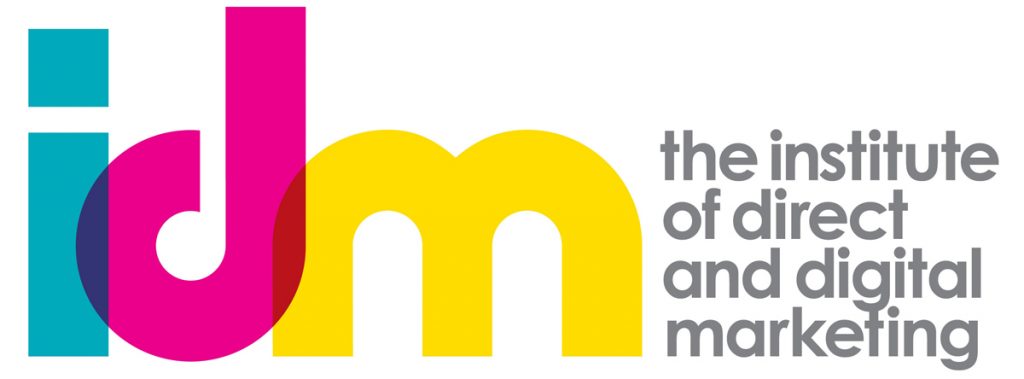AI helps manage client relationships now. However, this is only the beginning. AI may provide the basis for a new type of business: the Intelligent Business. What might this look like?
An intelligent business will think and solve problems for itself. But it will need to learn how to do this. Thinking about how that might happen suggests a role for Cognitive Psychology, which may have to be used to train this type of business and its integrated software.
Thinking about such blue skies is not an idle speculation. The history of technology, not only AI itself, teaches us that this progress can happen far more quickly than we are ready for. But there is another purpose. AI holds up a mirror for us, and thinking about intelligent business does the same thing for our companies.
In this blog, I will review some of the ways we use AI now, then use a Cognitive Development model to think about how the Intelligent Business might evolve before suggesting a role for Virtual Reality.
How AI is used today in a modern CRM system (ZOHO)
Most leading CRM systems will have developed AI assistants like ZOHO’s Zia, and even the less complete ones will offer Chat GPT plugins for email creation. The difference between plugins and “Assistants” is that AI assistants work with the data within CRM and can offer a lot more help, even to small businesses. Some of the most valuable ways that Zia does this are:
AI and Data Enrichment.
Often, we need to capture the essential information in the CRM system when we get a new enquiry, and we don’t have all the information we would like. A good example is enquiries from websites where we want to reduce the barriers to a visitor completing a contact form.
From this basic information, Zia goes to the web to try and find data to complete the record, such as the full address and website, publicly available phone number, and more, using sources of reference like Bing and others.
AI and Sales Management.
One of the critical issues for sales managers and directors is to get an objective idea about how likely a sale in the pipeline will close. Often, they rely on their own “gut feel” or, less reliably still, the “gut feel” of a salesperson who is naturally overly optimistic and incentivized to be that way.
Zia trains on historical data to identify patterns that can predict the OBJECTIVE likelihood of a sale closing. It will then continually improve the accuracy of this prediction.
AI and Sales Forecasting.
Forecasting is an underused feature of CRM systems. It differs from a pipeline because it attempts to predict what your sales will be in the future – next month or quarter, based on what is happening now. That means you can see that there is likely to be a shortfall in the sales you need early enough to do something about it.
Zia uses multiple factors to make that forecast, including each salesperson’s history, geographical location, and more, to give increasingly accurate and reliable predictions.
AI is used to detect Anomalies and Trends in Customer Data.
Business is becoming increasingly complex, so CRM systems need to be automated and configured in correspondingly more involved ways. These can become so complex that you only know when there is a conflict in how the system is automated after they are embedded.
Zia is used in ZOHO to get you ahead of the curve so you know that adding additional automation will create a conflict or the data will show a trend in the business that you had not anticipated.
AI is used to recommend and suggest ways to enhance Customer Relationships.
If you are responsive, customers will relate to your business and feel more loyal. The problem is that the relationship becomes increasingly standardized as the scale increases – perhaps around best practice. However, this standardization of response becomes evident to clients and destroys the trust and personal sentiments you want to engender.
Zia can help recommend ways of interacting with the clients based on looking for behavior patterns and generating recommendations for the most appropriate and relevant way to engage with them at any point in time.
The intelligent Business
CRM assistants like Zia will continue to improve and make our lives easier, but sooner than we think, there will be a step change between how we do business now and the Intelligent Business.
One of the issues we have in managing business is making decisive decisions when there is too little information available. We rely on abstractions from the data we have to simplify our view, often without appreciating the patterns and themes represented in the day-to-day detail.
For example, our intuition suggests that events that happen close together in time and place must have a causal connection. So we abstract these factors, which are often symptoms or erroneous, and we don’t appreciate that causes may act at a distance. We just haven’t got the time to grasp the detail of the day-to-day or the themes and patterns that emerge from it. In other words, we don’t have the time or the capacity to think about the whole system when we are up to our shorts in alligators.
It’s getting harder to adopt this systems thinking as business becomes ever more complex and the rate of change in our markets increases exponentially. However, working with massive quantities of data at incredible speed to learn from and find the patterns and themes that emerge is the very purpose of AI machines.
Harnessing the power of AI to empower Businesses to understand complexity at scale will be at the heart of the Intelligent Business of the future. However, how will these machines be trained and learn from the presented data? If AI is supposed to represent a model for how the Human mind works, it seems logical to suggest that one way of thinking about this is to use models of Cognitive Development in a child.
AI Learning and the Cognition of Intelligent Business
Cognitive Psychology will provide rich ideas and expertise in this area. I also suspect that the drive in AI to develop symbol manipulation will find a fruitful source in Noam Chomsky’s original work.
So, I want to pursue this path for fun and see where it might take us. To do that, I will use the stages of cognitive development proposed by Jean Piaget over a century ago, which is still an essential source for modern cognitive psychologists. My thought is that an Intelligent Business may be programmed to develop through these same stages.
Sensorimotor – Birth to Two Years Old
In this stage, children realize that a world of people and objects is separate from them and don’t disappear when they are not interacting with them.
From a business perspective, this would mean that the intelligent business would realize that clients are real people who are not defined solely by their transactions with them. In the same way, objects created by companies continue to exist in the world, separate from business.
So, the customer who transacts business at one point is the same person who interacts with them later to buy again, make a complaint, or ask for support. The intelligent business would join the data to identify the person behind the transactions and consider them separate entities from the company.
(Is that how business operates now? Is our focus on the transaction of business or the transaction with people? )
Preoperational – Two Years to Seven Years Old
After around four years old, children begin to recognize that the data they receive can be understood differently by other people. They also appreciate the preservation of value when the shape of things changes. For example, the area of a square may be “conserved” when it changes to an oblong.
The Intelligent business would build on the sensorimotor stage to realize that data is not the same as information. It would move from analyzing data to understanding values such as profitability as being preserved in different combinations of revenue, set against the elements that make up the cost to serve.
It would recognize patterns and trends in the data that suggest different ways to interpret it. It could also identify patterns in how clients behave and anomalies between these predictions and those indicated by the internal business data it works with.
(Does the business have an egocentric view of what data means? Do companies understand the difference between data and information and how it means different things for other stakeholder groups such as clients and employees?)
Concrete Operational – From Seven Years to Eleven Years Old
During this stage, the child starts to use logic to resolve problems, but only where this relates to concrete objects and events. They can use this logic not only to realize that others may have a different perspective but also to understand what this perspective is likely to be.
The intelligent business may not only recognize the anomalies between the internally focused models it has created and those it has found in the customer data but also start to create patterns from those anomalies that will predict outcomes and recommend courses of adaptive actions that would drive business decisions.
(Even if businesses take a stakeholder perspective, how easy is it for them to understand what that perspective is WITHIN ITS FRAME OF REFERENCE? Clients may view an increase in profits from a different perspective, but do we interpret this different perspective in a way that makes sense for us or in a way that makes sense for them?)
Formal Operational – From Eleven to Fifteen Years Old
In this final cognitive developmental stage, some children can move beyond inductive reasoning based on objects and events that have happened, or they can see and touch to work with logical rules to analyze things that don’t exist. A good example here is algebra and mathematical concepts.
Children can also consider their feelings and why others think that way. Ethical thinking develops when children are concerned that others they interact with may also be thinking about them and why they behave the way they do.
Would the Intelligent Business be able to take a further step and begin to find ways to realize the business’s more profound mission and purpose? Could the intelligent business manipulate symbols using decision trees in a way analogous to the theories of language that Chomsky developed? At that point, the Intelligent Business may find its voice and actively participate in the Boardroom.
(Is it practical for businesses to always do the right thing and do things right in detailed interactions in the real world? How easy is it for the company to actively live its values and purpose at every moment of truth in the client journey where employees and systems have these interactions?)
The Intelligent Relationship in the Age of Virtual Reality
It’s hard to judge which technological leap will most impact how we do business. The focus is AI, but Virtual Reality will likely have a considerable effect. Or should we think about these two technologies as being separate?
To paint a picture, imagine that you developed a personal relationship with a company’s persona in the Metaverse that was driven by AI and informed by all the data available across that business. It would also have developed a relationship with you, initially through a casual meeting, experimenting to see whether you are a good match, to win your trust, then where you felt safe to share your vulnerabilities with “them.”
The intelligent relationship in the age of Virtual Reality is the topic of a future blog.
I would like your thoughts.
Please leave comments and thoughts about this blog, and if you would like to contact me directly, then please email me at nick@successinbusiness.co.uk or 07983784816


